 W
WJulius Anton Adam, known as "Cats Adam" was a German genre painter and animalier specialising in pictures of cats.
 W
WJohn Woodhouse Audubon was the second son of the famed ornithologist and painter, John James Audubon. Like his father, he was primarily a painter of wildlife, but also did some portraits and genre scenes of the westward migration.
 W
WHermann Baisch was a German painter and illustrator who specialized in landscapes and animals. He was one of the first artists in Germany to work in the French influenced "paysage intime" style.
 W
WLéon Barillot was a French painter and engraver. He specialized in animals and landscapes.
 W
WFrancis Barlow was an English painter, etcher, and illustrator.
 W
WJean-Baptiste Berré or Jan Baptist Berré Antwerp, 11 February 1777 – Paris, 6 May 1839) was a Flemish painter and sculptor. He trained in Antwerp where he painted mainly still lifes. He later moved to Paris where he made a name as an animalier painter and sculptor. His patrons included members of the court during the First French Empire and the First Restoration. He was employed as an official painter at the Jardin du Roi in Paris. In this role he was chosen as one of the artists invited to portray Sarah Baartman, the 'Hottentot Venus', in 1815.
 W
WPieter Boel or Peeter Boel was a Flemish painter, printmaker and tapestry designer. He specialised in lavish still lifes and animal paintings. He moved to Paris, where he worked in the gobelin factory and became a painter to the king. Pieter Boel revolutionized animal painting by working directly from live animals in a natural setting. He thus arrived at representations of animals showing them in their natural, characteristic poses. He had many followers in France.
 W
WCarl Henrik Bøgh was a Danish painter; best known for his scenes with animals.
 W
WJohann Siegwald Dahl was a German animal painter.
 W
WXavier de Cock was a Belgian painter. He specialized in genre scenes and landscapes with animals.
 W
WAlexandre-Gabriel Decamps was a French painter noted for his Orientalist works.
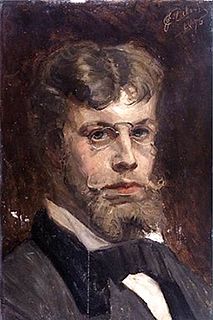 W
WJean-Joseph Delvin was a Belgian painter who specialized in scenes with animals.
 W
WPierre-Alfred Dedreux, who signed his works as Alfred de Dreux was a French portrait and animal painter, best known for his scenes with horses.
 W
WWalter William Ferguson was born in New York City in 1930 and passed away in 2015. He received his formal art training under scholarship at Yale School of Fine Arts and Pratt Institute. He has exhibited widely in Israel and abroad and his paintings are in many private collections.
 W
WVictor Reinhold Forssell was a Swedish landscape, animal and genre painter.
 W
WJean François Achille Giroux was a French painter and lithographer in the Realist style. Most of his works feature animals; primarily horses.
 W
WCharley Harper was a Cincinnati-based American Modernist artist. He was best known for his highly stylized wildlife prints, posters and book illustrations. Born Charles Burton Harper in Frenchton, West Virginia in 1922, Harper's upbringing on his family farm influenced his work to his last days. He left his farm home to study art at the Art Academy of Cincinnati, and won the academy's first Stephen H. Wilder Traveling Scholarship. Also during his time at the Academy, and supposedly on the first day, Charley met fellow artist Edie Mckee, whom he would marry shortly after graduation in 1947.
 W
WLily Irene Jackson, was an American artist and arts organizer active in West Virginia who specialized in paintings of animals.
 W
WCharles-Émile Jacque was a French painter of animals (animalier) and engraver who was, with Jean-François Millet, part of the Barbizon School. He first learned to engrave maps when he spent seven years in the French Army.
 W
WThéodore Antoine Louis Jourdan was a French painter of rural genre scenes.
 W
WCarl Kahler, also Karl Kahler, was an Austrian genre and animal painter, particularly known for his paintings of cats.
 W
WHelvig Agnete Kinch née Amsinck (1872–1956) was a Danish artist who specialized in painting animals, especially horses. In the early 20th-century, she participated in archaeological research near Lindos on the island of Rhodes, creating landscapes of the area and illustrating the artefacts discovered there. Together with Marie Henriques, in 1916 she established the Danish Society of Female Artists to encourage women artists to exhibit their works.
 W
WFrederick William Keyl, born in Germany, was an animal painter in England; he received many commissions for paintings from Queen Victoria.
 W
WCarl Fredrik Kiörboe was a Danish-born Swedish artist who specialized in paintings with animals; primarily dogs and horses. He was apparently self-taught.
 W
WKároly Klette, in German: Karl Klette von Klettenhof was a court painter and graphic artist; specializing in landscapes, still-lifes and vedute. He had two famous sons; the economist, Károly Keleti and the painter, Gusztáv Kelety.
 W
WHeinrich Lang was a German horse and battle painter, illustrator and author.
 W
WGeorge Henry Laporte was an English animal painter. He specialized in horses, mostly of the Arabian variety. His works depict scenes from hunting, racing and other sporting events, as well as animal still-lifes.
 W
WJean-François Legillon, originally Jan Frans was a Flemish painter who specialized in scenes with cattle. His name is sometimes written as Le Gillon.
 W
WReginald Badham Lodge (1852–1937) was an English ornithologist, photographer, and painter of birds.
 W
WMatsumura Keibun (Japanese:松村 景文; was a Japanese painter.
 W
WEdwin Megargee was an American animal painter, illustrator and author. He did portraits of dogs, horses and cattle, and he authored several books.
 W
WMathurin Méheut was a French painter, ceramist, engraver, and etcher best known for his depictions of Breton scenes, the sea, and nature.
 W
WÉmile-René Ménard was a French painter. From early childhood he was immersed in an artistic environment: Corot, Millet and the Barbizon painters frequented his family home, familiarizing him thus with both landscape and antique subjects.
 W
WJohann Christof Merck, or Merk was a German painter who specialized in uniformed portraits and animals.
 W
WMeszlényi Attila is an ecological writer, painter, animated film director, musician, and composer. His work as a painter and thinker is dominated by the theme of nature and our relation to it.
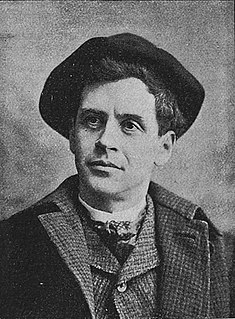 W
WJohn Austin Sands Monks (1850–1917) was an American painter and etcher known especially for his paintings of sheep. Born in Cold Spring, New York, to John and Sarah Catherine Monks, he was educated at the Hudson River Institute and studied engraving under George N. Cass and painting under George Inness. He was a longtime resident of Medfield, Massachusetts, and had a studio in Boston. He was a member of the Boston Art Club, the Copley Society, the Salmagundi Club, and the New York Etching Club. His sister was the naturalist Sarah P. Monks. He died in Chicago while visiting his daughter at the age of 66.
 W
WAndrés Parladé y Heredia, after 1903, the third Count of Aguiar was a Spanish genre and portrait painter who is best remembered for his hunting-related scenes, many of which feature dogs.
 W
WRené Pierre Charles Princeteau was a French animal painter.
 W
WHenri Émilien Rousseau was a French painter, graphic artist and illustrator; best known for his Orientialist scenes featuring horses and riders.
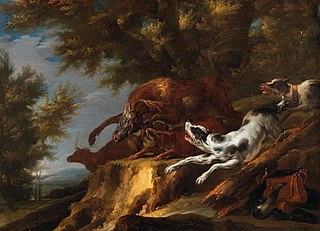 W
WCarl Borromäus Andreas Ruthart, also known as Carl Ruther and Karl Ruthard; in Italian as Carlo Borromeo Rutardo was a German painter who spent most of his career in Italy. During the last years of his life, he was referred to as Frà Andrea. He considered himself to be a follower of Peter Paul Rubens.
 W
WAugust Friedrich Albrecht Schenck was a German painter. He was both French and German by nationality.
 W
WAnton Schrödl was an Austrian painter of animals and genre scenes.
 W
WFrans Snyders or Frans Snijders was a Flemish painter of animals, hunting scenes, market scenes and still lifes. He was one of the earliest specialist animaliers and he is credited with initiating a wide variety of new still-life and animal subjects in Antwerp. He was a regular collaborator with leading Antwerp painters such as Peter Paul Rubens, Anthony van Dyck and Jacob Jordaens.
 W
WJohann Friedrich Steinkopf was a German landscape, animal and porcelain painter.
 W
WJosef Anton Strassgschwandtner was an Austrian painter and lithographer, who specialized in hunting, military and genre scenes.
 W
WRudolf Swoboda was an Austrian landscape and animal painter. He is generally referred to as The Elder to distinguish him from his nephew, Rudolf, who was also an artist.
 W
WWładysław Szerner was a Polish painter.
 W
WPaul Tavernier was a French painter who specialized in hunting scenes and animals.
 W
WNils Tirén was a Swedish painter and graphic artist.
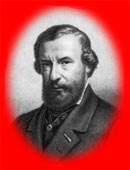 W
WConstant Troyon was a French painter of the Barbizon school. In the early part of his career he painted mostly landscapes. It was only comparatively late in life that Troyon found his métier as a painter of animals, and achieved international recognition.
 W
WCornelius Van Leemputten (1841–1902) was a Belgian painter known for his scenes of farmyard animals and landscapes with shepherds and grazing sheep.
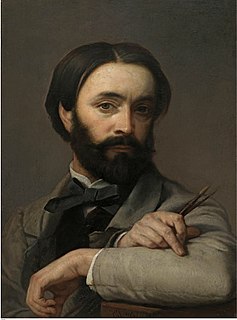 W
WCharles Verlat or Karel Verlat was a Belgian painter, watercolorist, engraver (printmaker), art educator and director of the Antwerp Academy. He painted many subjects and was particularly known as an animalier and portrait painter. He also created Orientalist works, genre scenes, including a number of singeries, religious compositions and still lifes.
 W
WJules Jacques Veyrassat was a French painter and engraver; associated with the Barbizon school. Most of his works feature animals.
 W
WLudwig Gustav Voltz was a German landscape and animal painter. He also did illustrations.
 W
WHenri, Hendrik, or Henry Voordecker was a Belgian painter of genre scenes, especially of birds such as pigeons – his most notable works include Hunter's Home. By late in his career he was regarded as perhaps the most distinguished painter in Brussels, and was also successful in Britain.
 W
WGeorges Washington was a French Orientalist painter. Most of his works featured soldiers and horses.
 W
WGunnar Brynolf Wennerberg was a Swedish painter of the Düsseldorf School and a major landowner. He specialized in animal paintings and genre scenes.
 W
WDean Wolstenholme the elder (1757–1837) was an English animal painter.